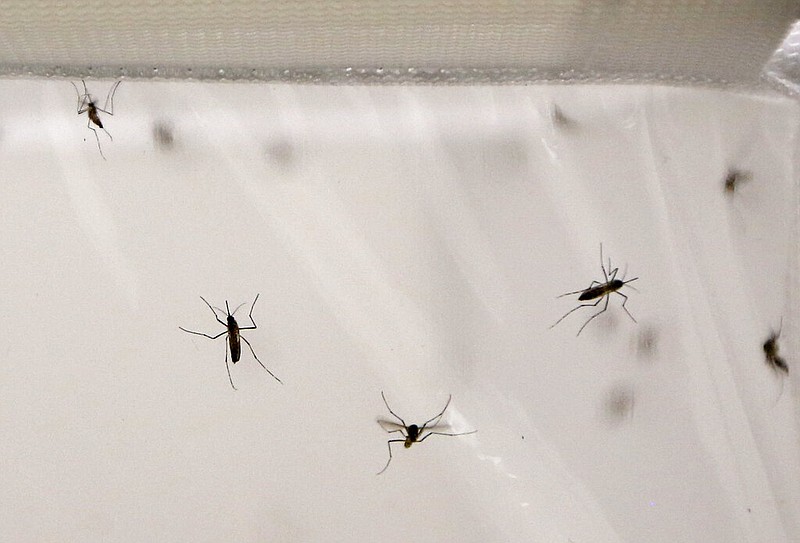The first locally acquired case of malaria in the state was identified earlier this week in Saline County, Dr. Naveen Patil, deputy state health officer and medical director of infectious diseases, said in a news conference Wednesday.
"We are still doing a thorough investigation to see the contacts of the patient, whether they were in contact with anyone who traveled abroad, who had malaria, those kinds of things, but some questions we may never be able to answer," he said.
The Arkansas Department of Health has not identified the cause of the case and they are still investigating, Patil said.
In July, the United States saw the first cases of locally acquired malaria since 2003. Those cases were in Florida, Texas and, most recently, in Maryland.
According to the Centers for Disease Control and Prevention website, "Most malaria cases diagnosed in the United States are imported, usually by persons who travel to countries where malaria is endemic. However, locally acquired mosquito-transmitted malaria cases can occur."
Since 2011, Arkansas has seen only 46 cases of malaria and 21 cases of Zika -- all contracted through travel. In the same time frame, the state has seen 166 cases of locally transmitted West Nile virus, according to the state Department of Health website.
"West Nile is here in Arkansas and is here in the U.S., and I think it's much more common than the malaria cases that we have," Patil said
Patil added that though mosquitoes can carry West Nile virus and malaria, the Department of Health does not anticipate an outbreak and they are beginning the process of capturing mosquitoes and testing them for the malaria parasite.
"We are being very cognizant; malaria was a major public health issue in Arkansas and most parts of the U.S. 50 or 60 years ago, but good public health measures and control has helped eliminate this disease," he said.
Patil said the case should not cause immediate concern for Arkansans.
"Malaria does not spread from person to person. It is carried by mosquitoes. So a mosquito that is infected, you bite the person, and then it can transmit, so the chances are still extremely low."
Malaria symptoms can appear seven to 30 days after a person is bitten by a mosquito and include fever, chills, body aches, headaches, nausea and vomiting, but can be "very non-specific," Patil said.
"Common things are common, every person who has fever and body aches, you shouldn't think of malaria first, you should think of the common things that are present in Arkansas first," he said.
Worldwide, children are the most vulnerable to severe cases of malaria and death associated with the parasite, he said.
"The U.S. has adequate medical resources and malaria is now completely curable and treatable. Once a patient is started on treatment, they start getting better within 24 to 48 hours, even the most severe cases of malaria can be treated," Patil said.
The status of the patient and their symptoms have not been disclosed.
"Almost a million people die each year and that's because of lack of adequate treatment or access to care. But we don't anticipate that sort of issue here because once identified, if medications are given the complications or severity of the disease is minimized," Patil said.
On its website, the CDC says climate change is "causing milder winters, warmer summers, and fewer frost days," allowing pests, such as mosquitoes and ticks, to migrate to new areas and to infect more people.
"If you're going to areas where you anticipate there's a lot of mosquitoes, you should dress appropriately, wear full clothes and put on spray that won't let mosquitoes bite you," Patil said
Since mosquitoes breed in stagnant and dirty water, regularly emptying pots or vessels around your house where water collects can keep the eggs and larva from reproducing, he added.
Currently, there are no approved vaccines for malaria but treatment is widely available in the state and Patil recommends taking preventive measures.
If you are traveling internationally to regions where malaria is more common, medication is available to stave off the contraction of malaria, Patil said.
The Health Department is working "in tandem" with hospitals as they investigate the cause further.
"We anticipate if the person is sick enough to be hospitalized, they will be in mostly larger hospitals. We are in discussions with them to see if they have the capacity, if they have the testing abilities, if they have the medications that are readily available," Patil said.
